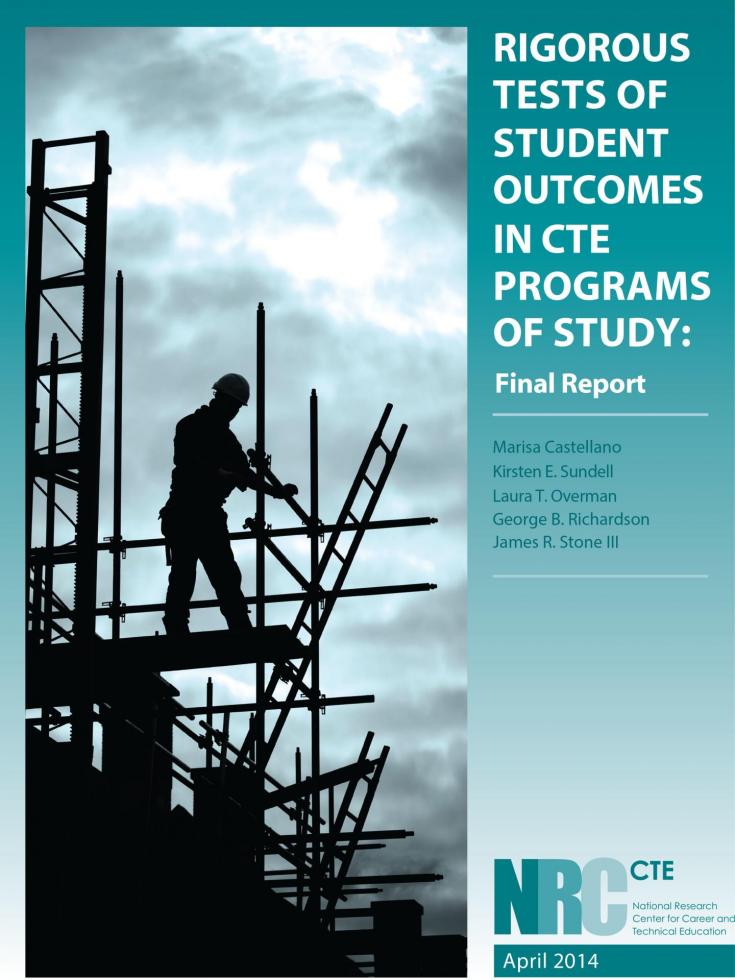Rigorous Tests of Student Outcomes in CTE Programs of Study: Final Report
 This final report offers findings
from a four-year longitudinal field study of 6,638
students in three large urban school districts in three states.
Researchers Marisa Castellano, Kirsten E.
Sundell, Laura T. Overman, George B. Richardson,
and James R. Stone III followed students from the Class
of 2012 from their ninth-grade year through high school
graduation. Students in the intervention group were enrolled in
programs of study/career pathways, many offered as wall-to-wall
career academies in subject areas ranging from the health
sciences, engineering technology, and alternative fuels to
automotive technology, business and marketing, and culinary and
hospitality. Students in the comparison group attended regular
comprehensive high schools.
This final report offers findings
from a four-year longitudinal field study of 6,638
students in three large urban school districts in three states.
Researchers Marisa Castellano, Kirsten E.
Sundell, Laura T. Overman, George B. Richardson,
and James R. Stone III followed students from the Class
of 2012 from their ninth-grade year through high school
graduation. Students in the intervention group were enrolled in
programs of study/career pathways, many offered as wall-to-wall
career academies in subject areas ranging from the health
sciences, engineering technology, and alternative fuels to
automotive technology, business and marketing, and culinary and
hospitality. Students in the comparison group attended regular
comprehensive high schools.
Researchers found that in one district, enrollment in programs of study/career pathways increased student graduation rates by increasing the number of CTE credits they earned. Across all three districts, earning more CTE credits was associated with graduation– a finding corroborated by the NRCCTE’s recent analysis of the impact of CTE credit-taking on surviving high school. Although student achievement varied by district, results showed that students in programs of study/career pathways outperformed their peers on the number of credits they earned in STEM and AP classes while also earning higher GPAs in their CTE classes.
Senior survey results showed that similar numbers of program of study/career pathway students and comparison students planned full-time attendance at a four-year college; further, program of study/career pathway students indicated that their studies would be related to their high school pathways.
Researchers contend that programs of study/career pathways that combine college-ready academics with rigorous, industry-driven career-technical studies can be offered to high school students with no harm to their college aspirations. States, districts and policymakers seeking to prepare more students for postsecondary education and training programs and high-skill, high-wage jobs should consider programs of study/career pathways as a tool for increasing students’ high school engagement, achievement, and transition to college and careers.
Castellano, M., Sundell, K. E., Overman, L. T., Richardson, G. B., and Stone, J. R. III. (2014, April). Rigorous tests of student outcomes in CTE programs of study: Final report. Louisville, KY: National Research Center for Career and Technical Education.

